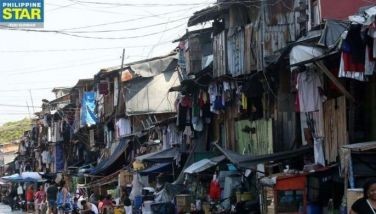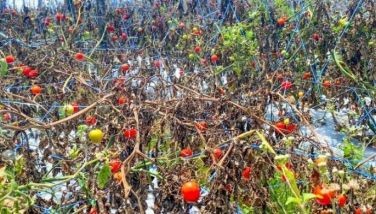Inclusion of socio-political risks in resilience concept pushed
CEBU, Philippines - Policy makers should not limit their concepts of resilience to natural disasters but they must also consider and plan for socio-political risks.
Marife Ballesteros, vice president of Philippine Institute of Development Studies, said during the Kapihan sa PIA-Cebu forum yesterday that socio-political risks include the present geopolitical tensions in the West Philippine Sea, repatriation of Overseas Filipino Workers as a result of various types of crisis, health risk such as pandemics and financial risks such as exchange rate fluctuations, falling commodity and oil prices, among others.
The PIDS believes that risks are many and interconnected and currently the Philippines has few and relatively inadequate studies on risks, disasters and resilience.
"The country needs a so-lid policy framework," it said.
It added that the Philippines is located on the earthquake belt, the Ring of Fire, and the typhoon corridor and it has many communities standing in the path of these disasters.
It said that the Philippines is second on the list of top countries that are most at risk worldwide.
"Countries at risk have high vulnerability and exposure levels, but with little or disproportionate ability to respond or adapt accordingly," PIDS added.
According to PIDS, local communities that do not have good resilient systems are exceptions rather than the rule and it needs to be changed.
The change must start with producing more studies and evidence-based research on risks, disasters and resilience on order to inform policy as well as having a proactive information and education campaign on the importance of building communities with multiple resilience.
Ballesteros also talks about the so called "Black Swan" events which are extreme types of shock that are totally unpredictable and unanticipated shocks that can change the political landscape like the 9/11 incident.
For a resilient Philippines, government agencies must work hand in hand especially at the barangay levels, said Anthony Arsenal, DSWD-7 Planning Officer.
DSWD adopts a social protection that constitutes policies and programs that seek to reduce poverty and vulnerability and to enhance the social status and right of the marginalized.
Social Protection programs aims to lift people out of poverty. It also seeks to prevent people from becoming vulnerable because of individuals and life cycle risks, economic risks, environmental risks and social and governance risks.
Arsenal said that part of the risk mitigation is the technical assistance provided by DSWD to social welfare officers in the 107 local government units in Central Visayas.
Still part of risk mitigation, DOST-7 director Edilberto Paradela said that their agency is putting up water level sensors in major basins in critical and strategic areas in Cebu in order to determine rain or water levels.
Paradela added that residents whose homes are situated along the fault lines in Cebu should evacuate to prevent loss of lives. (FREEMAN)
- Latest



























